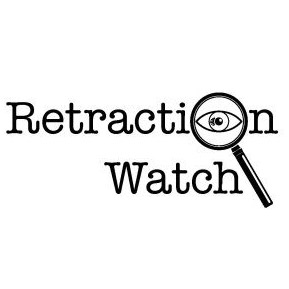One isn’t much better than the other lol
“How dare you accuse me of not writing that article. I didn’t even write it!”
This has unironnically happened before (sort of) https://retractionwatch.com/2023/08/30/unethical-and-misleading-researcher-finds-his-name-on-editorial-boards-of-journals-hes-never-heard-of/
I just love how retraction watch just doesn’t hold back with statements like this
Loffroy also toned down the offense, saying he wouldn’t care if others had plagiarized his work.
They also just posted his picture on the top of the article.
Plagiarism is misrepresenting someone elses’ work as your own, so wouldn’t having a ghostwriter write “your” article still be plagiarism regardless?
No, ghostwriting is not plagiarism. Done correctly, there is nothing wrong with it. Hard to argue this professor did it correctly
How do you define the two terms? I’m genuinely curious since the definitions I’ve seen for the terms imply that it is a type of plagiarism, but they definitely don’t have the same connotations.
A ghostwriter is usually someone hired to produce a piece of written work, with set terms like deadlines, payment, possibly confidentiality, and other things. Things like memoirs (even some presidents’) are ghostwritten by someone who listens to rambling stories and takes notes to produce something readable.
Plagiarism suggests Person B presenting Person A’s work as their own without Person A or their intended audience knowing that fact. In this scenario there is no compensation for the claimed work and presumably no communication or cooperation between the writer and plagiarizer.
Thanks for the comment, that was very insightful. I’m not sure I fully agree with this definition of plagiarism in academia though, but rather I am familiar with a broader one that includes both willful prearranged plagiarism and even self plagiarism.
In academia, the main discriminating factor to establish plagiarism would be the presence or absence of references, so in this case it would mean that the review would have had to include the ghostwriter as an author directly (and hence wouldn’t be a ghostwriter anymore 😉
When you work with a ghostwriter, everyone has agreed to the arrangement up front. And a ghostwriter spends time with you, does interviews, in order to write your story, because they have writing skill and you don’t.
Source: Bojack Horseman
Not quite what I was taught. It is possible to self-plagiarise, plagiarism only needs to be reproduction of a work with the claim it is your own original work.
I still think that’s a ploy by journal publishers to prevent losing their exclusive extortion abilities, but that doesn’t really make much difference to the end result.
Self-plagiarism to me is more of a related but separately defined term from “true plagiarism,” but defining it based on work rather than author does make a lot of sense.




